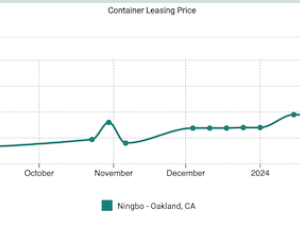Conference keynoter, Lee Jae-Gyoon, vice minister at the ministry of land, transport and maritime affairs, admitted that the current economic downturn had hit harder than forecast but that Korea was well prepared to weather the storm. Mr Lee outlined a number of upcoming government initiatives and activities for shipping that included plans to further advance the technical and design standards for ships, strengthening safety management systems, an enhanced focus on environmental issues, heightened collision damage compensation and actions to help reduce global piracy.
The impact of falling freight rates was a theme taken up by many of the conference speakers. Some thought that oil and commodity prices would stabilise in 2010 but that the growth of the world fleet would necessarily slow down as ship recycling started up again. The financial squeeze might, some said, make older ships more economic due to lesser financing requirements which could lead to a general shift in the age profile of the fleet. Others thought that it would be the older vessels that were more likely to be scrapped as global demand diminished.
The recent boom years had driven vessels and crews to work much harder but recently, according to some speakers, there had been a reduction in collisions, groundings and other human element induced incidents leading many to believe that these would continue to fall as the pressure eased. It was also argued that human error was the root cause of 80% of insurance claims and that these were also likely to reduce as less than scrupulous owners would no longer need to send ships to sea with ill-trained, inexperienced or undermanned crews. At the same time, more focus could be given to improving the working life of the seafarers including better on-board accommodation, improved shore access and measures to reduce crew fatigue.
Some owners, it was argued, had been guilty of overworking their vessels and had been less than diligent in sticking to maintenance schedules causing an increase in machinery and other failures. A lack of repair and dry-dock facilities were also thought to have been a contributory factor. But low freight rates would cause additional problems for the insurance sector as owners filed more claims in an attempt to cover maintenance and running costs.
Shipyards were facing similar issues. Plummeting freight rates and vessel values had reduced shipyard liquidity but those building high quality vessels would continue to prosper, particularly in the current environment of ever increasing regulation. Specific issues facing the Korean builders ' and echoed in many yards across Asia ' were highlighted. They were concerned with the 255% increase in the price of steel plate (since 2002) and a shortage of skilled workers. More than 119,000 skilled workers were employed in the main Korean yards and the requirement was growing year-on-year. Many yards were now relying on subcontractors, it was said.
Speakers at the conference included: Peter Swift - Intertanko, Roberto Cazzulo - RINA, Simon Stonehouse - Brit Insurance Holdings, Kwon Oh-Yoon - Korean Shipbuilders' Association, Lee Jin-Bang - Korea Shipowners' Association, Clifford Proctor - OCIMF, Roger Holt - Intercargo, Michael Grey - Lloyd's List, Peter Hinchliffe - International Chamber of Shipping and Lim Chin-Soo - KMI, commenting on the event, KR chairman Mr Oh Kong-Gyun said 'Korea remains the world's premier shipbuilding nation and one of the top global ship-operating countries. The core role of the Korean Register is to ensure the safety of vessels at sea and the protection of the maritime environment and this important conference has provided






